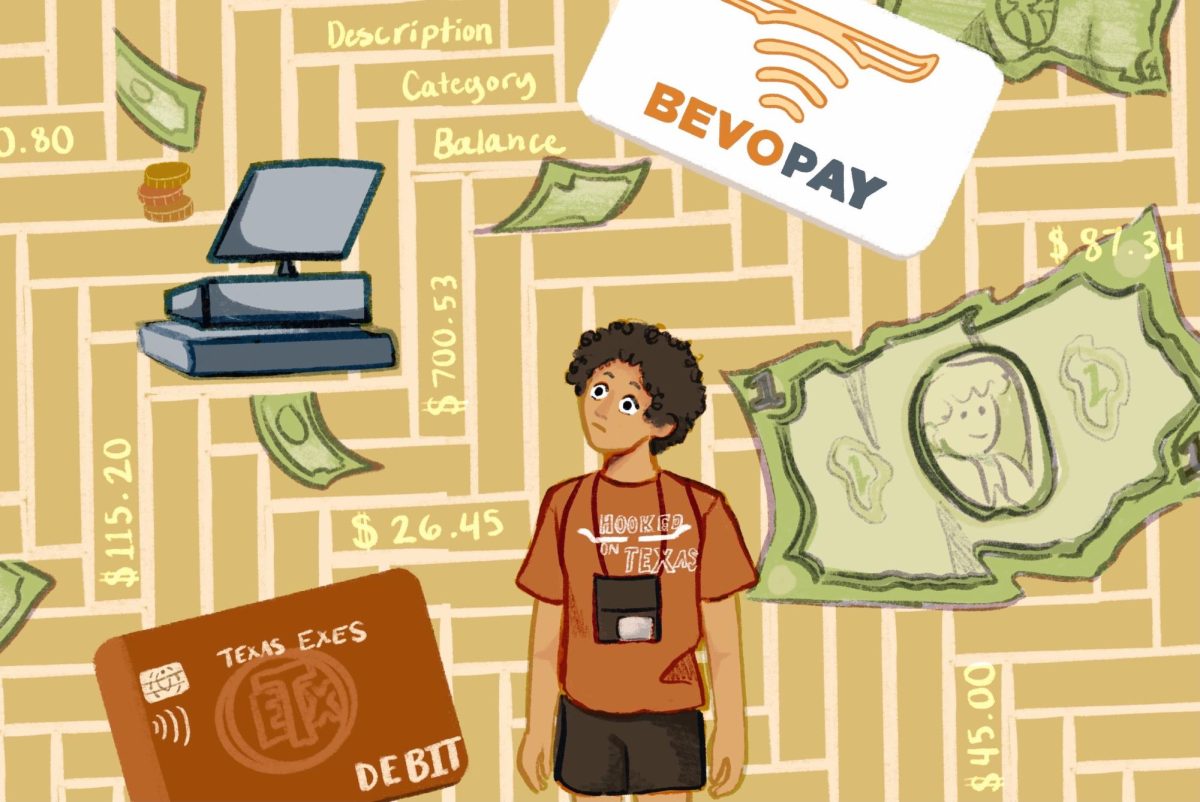College life ushers in many firsts. This may include a student’s first credit card or first checkbook. It can be daunting to navigate this without background knowledge on personal finances.
New Student Services should partner with Texas Financial Wellness to include a required presentation on financial literacy during orientation, focusing on responsible credit use and financial wellness resources on campus. Alongside the basics of credit, this initiative should offer practical advice for smart money management and describe the far-reaching implications of minimum payments and long-term debt and.
Kyle St. Nicholas, associate director of New Student Services, stated that this year’s orientation provides information on financial wellness resources through the Discover UT Resource Fair. He also said they provided optional presentations on financial literacy resources during last year’s orientation.
“We did offer something last year that was optional for incoming students, but the turnout was low,” St. Nicholas said.
While Financial Wellness provides information on its financial wellness resources on campus through resource fairs and optional presentations, the fact remains that it’s an underused asset that would be beneficial for everyone during their college years and beyond. A presentation, like the one last year, has the capacity to inform students about the invaluable guidance that Financial Wellness provides. By making it a requirement, the University can ensure all students receive this valuable education.
St. Nicholas also explained that diverse backgrounds contribute to varied levels of financial understanding.
“We have first-generation students, and they might come in with one level of understanding and knowledge,” St. Nicholas said. “Then, we have our fourth-generation Longhorns and students who came through the foster care system, so they might be in a different financial space in terms of knowledge and understanding.”
Some may point out that this presentation may be an unwarranted addition to an already packed orientation schedule and students are unlikely to become experts on credit cards after one presentation. These are valid concerns. However, the purpose of such presentations is to provide a basic understanding of a vital and practical portion of our lives.
“I like the idea of having a presentation (on financial literacy) that everyone would be able to benefit from,” incoming electrical engineering freshman Samien Rahman said. “It would be nice to have one presentation that would tell us what we need to know.”
Financial Wellness already provides in-person presentations by request for classes and student organizations, so simply expanding their program to accommodate new students will make financial literacy at UT more accessible. New Student Services and Financial Wellness can collaborate to efficiently incorporate this crucial information into the orientation program.
Nilda Mason, a certified personal finance counselor at Financial Wellness, said that implementing a required presentation on financial literacy is a feasible solution.
“We have the staffing, we have the support from our directors, and more than anything, we have the willingness to do it,” Mason said. “We would love the opportunity to speak about our partners who are available to help students and then give them access so they know how to reach us, book an appointment and request additional resources.”
Mason also explained how dealing with finances for the first time can cause anxiety among students, which takes a toll on their mental health, affecting their self-worth. Utilizing financial literacy resources from the start can improve mental well-being.
Financial literacy is not just a functional skill, it’s a critical life skill. By incorporating a presentation on credit card usage and financial wellness resources, the University can ensure students begin their journey armed with the tools necessary to make sound financial decisions.
Muyeed is an economics junior from Southlake, Texas.














